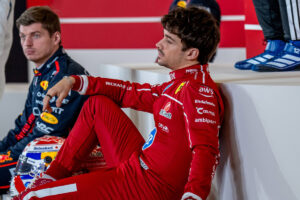F1 News Today: McLaren boss reveals major challenge as official statement issued over shock….read more

F1 News Today: McLaren boss reveals major challenge as official statement issued over shock….read more
McLaren Racing’s Chief Executive Officer, Zak Brown, has recently addressed several pivotal challenges and developments impacting both McLaren and the broader Formula 1 landscape. Concurrently, the Fédération Internationale de l’Automobile (FIA) is experiencing significant leadership changes, with former CEO Natalie Robyn commenting on the organization’s internal dynamics.
McLaren’s Strategic Challenges and Progress
Zak Brown has been instrumental in McLaren’s resurgence since his appointment in 2016. Upon his arrival, the team faced numerous obstacles, including financial instability, outdated infrastructure, and a lack of competitive performance. Through strategic leadership and key personnel changes, such as promoting Andrea Stella to Team Principal, McLaren has revitalized its competitive edge. This transformation culminated in a strong performance during the 2024 season, with drivers Lando Norris and Oscar Piastri achieving notable successes, including Norris’s maiden Grand Prix win in Miami.
Despite these advancements, Brown acknowledges the intensifying competition within Formula 1. The 2024 season witnessed five different teams securing podium finishes, underscoring the sport’s heightened competitiveness. Brown expressed concerns about McLaren’s ability to consistently outperform top teams like Red Bull, Mercedes, and Ferrari, emphasizing the need for relentless dedication to bridge performance gaps.
Advocacy for Structural Reforms in Formula 1
Beyond team-specific challenges, Brown has been vocal about broader issues within Formula 1’s governance and operational structures. He has called for revisions to the sport’s cost cap regulations, highlighting that current financial constraints inadvertently hinder investments in sustainability initiatives. Brown advocates for regulatory adjustments that would allow teams to pursue environmentally sustainable technologies without compromising competitive performance.
Additionally, Brown has addressed concerns regarding the governance of Formula 1, criticizing the excessive influence of teams in rule-making processes. He argues that this dynamic leads to inconsistencies in regulation enforcement and calls for a clearer delineation of authority between the FIA and the teams to ensure fair competition.
FIA Leadership Changes and Internal Dynamics
The FIA is undergoing significant leadership transitions, marked by the resignation of Deputy President for Sport, Robert Reid. Reid cited a “fundamental breakdown in governance standards” and decisions made without proper processes as reasons for his departure. This resignation adds to the growing concerns over the FIA’s leadership under President Mohammed Ben Sulayem, with criticisms focusing on issues of transparency and centralized decision-making.
Former FIA CEO Natalie Robyn, who resigned in 2024 after an 18-month tenure, echoed these concerns. Robyn’s departure was attributed to disagreements with Sulayem and highlighted structural challenges within the organization. Her resignation was part of a series of high-profile exits from the FIA, including those of sporting director Steve Nielsen and single-seater technical director Tim Goss, raising questions about the stability and governance of the organization.
Implications for Formula 1
These developments within McLaren and the FIA have significant implications for the future of Formula 1. McLaren’s efforts to navigate increased competition and advocate for structural reforms reflect broader challenges faced by teams striving for both performance excellence and sustainability. Simultaneously, the leadership upheavals within the FIA underscore the need for robust governance structures to maintain the integrity and progress of the sport.
As Formula 1 continues to evolve, the actions and decisions of key stakeholders like Zak Brown and the FIA leadership will play crucial roles in shaping the trajectory of the sport, balancing competitive ambitions with the imperative for sustainable and
transparent operations.








